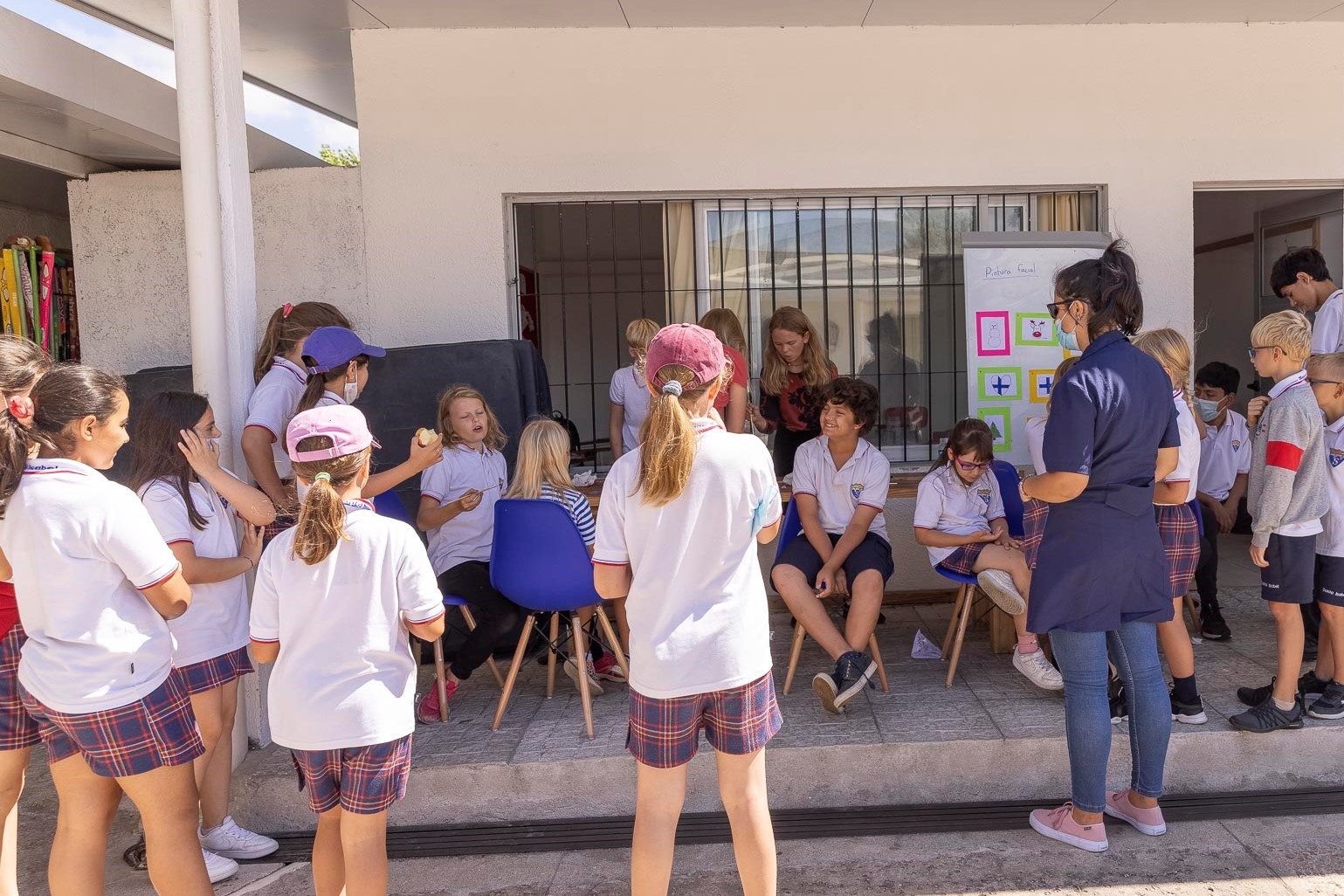 Education and cultural exchange in Uruguay
Education and cultural exchange in Uruguay
The school for children of Finnish employees working on the construction of UPM’s upcoming pulp mill in Paso de los Toros in Uruguay has soon been in operation for a whole year. According to their teachers, the pupils have adapted well to the new environment and local community.
Salla Rohiola and Perttu Kuronen arrived in the Uruguayan city of Paso de los Toros in January 2021. They were chosen to be teachers in the project by EduCluster Finland, an education organisation owned by the University of Jyväskylä Group. EduCluster is in charge of the arrangements related to the basic and secondary education for the Finnish pupils until the end of 2022, when the new mill is expected to start up. This is the first assignment abroad for Kuronen, whereas Rohiola already had previous experience of teaching overseas, including during the construction of UPM’s Fray Bentos pulp mill.
“The previous project didn’t include an operator such as EduCluster, as we teachers prepared and carried out the undertaking ourselves. Even though there are always surprises – for example, related to the communications technology and classrooms – this time everything has otherwise proceeded as expected. Although the coronavirus pandemic forced us to switch to distance learning from the beginning of March until the summer holidays,” Rohiola says.
Kuronen has been especially happy with the way the Finnish pupils and teachers have been welcomed. The teaching is organised at a local private school, the Santa Isabel Educational Institute.
“We have been most welcome and anticipated guests. We cooperate with the local teachers on a daily basis – we have common classes and projects, and spend our recess together, so the children have had a chance to get to know each other better,” Kuronen says.
Connected through football
Based on the Finnish curriculum, the education is carried out via the online learning platforms Kulkurikoulu and Nettilukio. There are altogether 30 pupils, from first graders to high school students. Rohiola and Kuronen are the only teachers on-site in Paso de Los Toros, but each subject has its dedicated teacher, who arranges distance learning classes and assesses the pupils. Rohiola is responsible for the grades 1-5, while Kuronen attends to the older pupils.
“The framework for lessons is identical to Finland, but we are not able to provide all classes. For example, the school doesn’t have suitable classrooms for lessons in home economics or woodwork. However, we have studied these subjects, for example, in cooperation with the pupils’ homes,” Kuronen says.
Various events have been an important part of helping the pupils adjust and get to know a new country. One of the most memorable things has been a class trip to the Republica Finlandia school in Fray Bentos, named after its previous connections with a Finnish school.
“When the Finnish girls’ national football team participated in the World Cup in Uruguay, the school’s pupils visited the match and were presented with a football signed by all the players. The school had it prominently on display in a glass cabinet. They had also arranged a Uruguay vs. Finland football match for us among students, and our visit was even included in the main news broadcast that evening,” Rohiola recounts.
The latest event to be organised was a visit from a candombe drum section, giving the pupils a chance to familiarise themselves with the local carnival culture.
Respect for the local community
According to the teachers – besides arranging basic education in Finnish – another important part of the job is sharing Finnish educational know-how. The local staff has been trained by arranging workshops and providing consultation in organisational issues. However, the starting point for all cooperation is always respect for local practices and experts, says Sini Palm, Lead Expert with EduCluster:
”We are, of course, working on their premises and according to local processes. In most cases, it’s simply about small observations for making the everyday work at school run smoothly. For example, we have together renewed our practices for recess and made it easier to book classrooms by sharing timetables.”
Palm is responsible for coordinating operations with all partners and has been in contact with parents in the preparation phase before the school started. Because of the coronavirus situation, she was only able to visit Paso de los Toros for the first time at the beginning of November.
”It was important to see the educational environment for myself, not only via online video, and meet the parents face to face. Also, we arranged a workshop for the teachers, and a separate event together with UPM’s local Foundation, Fundación UPM, for teachers in the local area. All in all, the reception has been really warm, and the interest towards Finland and our way of working has clearly increased,” Palm says.
Read more:
